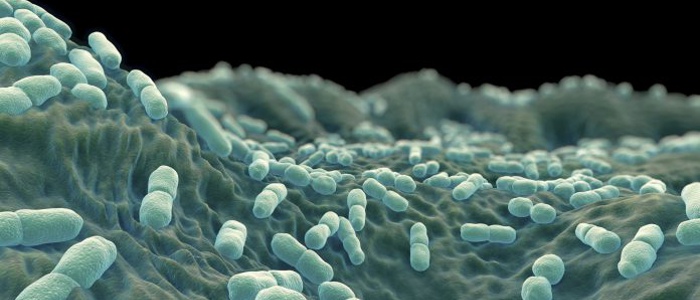Johannesburg, 12 January 2018.
As of 12 January 2018, a total of 748 laboratory-confirmed listeriosis cases have been reported to NICD since 01 January 2017. Final outcome data are available for 160 of the patients, of whom 67 have died. Most cases have been reported from Gauteng Province, followed by Western Cape and KwaZulu-Natal provinces.
Listeria is a bacterium that is naturally found in the environment. It commonly occurs in soil, water, vegetation and in the faeces of some animals. It can contaminate a wide variety of food types, including meat and meat products, dairy products (unpasteurised and pasteurised), fresh and frozen produce (fruits, vegetables and sprouts) and ready-to-eat products. This fact, coupled with a variable incubation period that can range from 6 hours to 70 days, poses a major challenge in determining the source of the outbreak.
This is the largest documented listeriosis outbreak South Africa has ever experienced. All available resources are being directed to outbreak investigation activities and interventions. The national departments of Health, Agriculture, Forestry and Fisheries, and Trade and Industry are working closely with agriculture and food industry stakeholders to intensify investigation efforts aimed at identifying the possible source/s of the outbreak, whilst enhancing food safety interventions. Given the recent focus on raising awareness of listeriosis amongst the general public, it is important to reiterate a few key points regarding this disease:
- Listeria cannot be spread from person to person.
- Listeria infection follows consumption of contaminated food, or is transmitted from a pregnant mother to her unborn foetus.
- Most healthy people who consume food contaminated with Listeria do not get ill. When persons do get ill, they develop either self-limiting gastroenteritis that presents with fever and diarrhoea, which usually resolves on its own without medical intervention, or more severe illness including meningitis, bacteria in the blood, and pregnancy-associated complications.
- Only a small group of the population are at risk of severe illness due to Listeria infections. This group includes pregnant women, babies under the age of one month, people over the age of 65, and anyone with a weakened immune system (including people who have HIV, those with cancer, people who have kidney or liver diseases, those with diabetes, and people taking certain medications that suppress the immune system – such as corticosteroids or chemotherapy).
- Pregnant women are an important high-risk group, as they may transmit the infection to the unborn child. Meningitis and blood infections are the important severe forms of listeriosis.
Healthcare workers across the country, both in the private and public healthcare sectors, are aware of this outbreak and have been cautioned to be alert for listeriosis in groups of people at high risk of developing severe disease. When health workers suspect listeriosis, appropriate laboratory tests can be performed (blood culture) and correct antibiotic treatment can be given. The infection is treated with ampicillin, an antibiotic that is widely available.
Comprehensive information on all listeriosis cases to date has been difficult to gather. Prior to 15 December 2017, listeriosis was not a notifiable medical condition. Therefore, healthcare workers and laboratories were not legally required to report cases to the Department of Health. Since 15 December 2017, listeriosis is now a notifiable medical condition. This means that healthcare workers and laboratories have a legal requirement to report cases directly to the Department of Health, and supply information to facilitate case-tracing - which includes residential addresses and contact numbers etc. This rapid notification of listeriosis cases is extremely important in assisting with the outbreak investigation, since it allows for rapid follow-up of cases.
The National Department of Health has tasked Provincial Departments of Health to follow up on cases where critical information is missing, which is ongoing. The NICD is assisting with this follow-up investigation where possible; healthcare workers caring for patients with laboratory-confirmed listeriosis are requested to complete a standardised ‘Case Investigation Form’, which includes information on the outcome of the disease.
It is important to understand that persons who are infected with Listeria pose no risk to other people. The reason for tracing people who have been diagnosed with listeriosis is for us to understand how the disease is behaving in our population – how many people are recovering, or developing complications, or dying from the disease.
We also want to confirm that the current outbreak poses minimal threat to tourists in the country, as there are no indications from the available information that any tourist has been affected by this outbreak.
Genetic testing on samples of Listeria from patients diagnosed with the disease suggests that a single strain of the bacteria, sequence type 6 (ST6), is responsible for the majority of infections. This implies that a single source of food contamination is causing the outbreak, i.e. a single widely consumed food product, or multiple food products produced at a single facility.
Field workers have tested samples from food processing facilities, abattoirs, and food from patients’ homes. The ST6 strain has so far not been identified from any of these samples. While the search for the source of the bacteria continues, the NICD recommends that the public adhere to general food hygiene measures, which include the following:
- Consume foods where preparation renders food safe from bacterial contamination, such as pasteurised dairy products or canned vegetables.
- Avoid eating food that has expired or has not been stored correctly or cooked thoroughly.
- Ensure that meat, poultry, eggs and seafood are properly cooked before consumption.
- Store and handle raw meat, poultry and seafood separately from other foods in the home, to prevent cross-contamination of other foodstuffs.
- Refrigerating and reheating foods correctly.
- Washing fresh fruit and vegetables thoroughly before eating.
- Heat ready-to-eat processed meat and poultry products, such as sausages, viennas, polony, smoked products, and other ‘cold meats’ should be cooked were possible
- Pregnant women and other persons at risk of serious disease should avoid eating soft cheeses.
Additional information is available at www.nicd.ac.za
Issued by:
The National Institute of Communicable Diseases (NICD)
Johannesburg
The National Institute for Communicable Diseases (NICD) is supporting and investigating the Listeria Outbreak in South Africa for the South African Government. Here is their news on the outbreak. ...
Attorney Janusz Luterek, addresses questions on the legal implications of the listeria outbreak for the food industry...
The National Institute for Communicable Diseases (NICD) is reporting a very large outbreak of Listeriosis in South Africa. Here are some facts that you should know.
...






